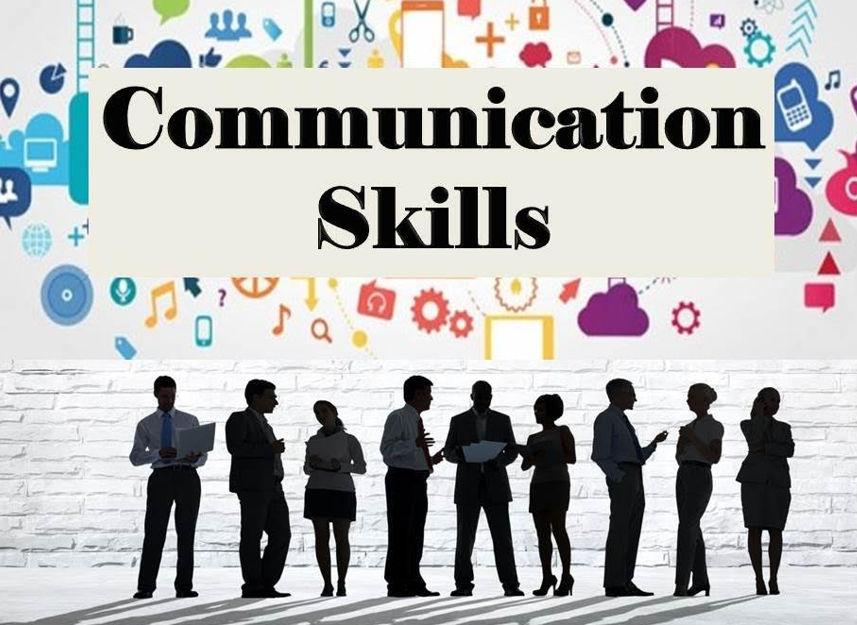Communication Skills for Students: You Need to Know
Contents: Communication Skills for students
Why Are Communication Skills Indispensable for Students?
In a student’s academic or professional life, communication skills make a student more influential than others. We see examples in our lives where the average students are more successful than those bookworms. It is because some students are good at communication and others are not.
A student might be excellent on the paper. But, he might not be great in practical life due to the weak interpersonal and soft skills (add the link to the previous article — Teenage Life Skills) that a student or an adult requires to lead a healthy professional and everyday life.
For instance, one of my friends is a passionate researcher. However, he struggles to describe his ideas to the general public or his counterparts and most times fails to do it. That is why I emphasize that communication skills for students are indispensable.
Misconceptions about Communication Skills
Many people believe that communication is limited to conversation only. However, the reality is the opposite. The circumference of communication is quite vast. In addition, people have attached some misconceptions about it. Among these misconceptions, the following are the most common ones.
- First, communication skills mean talking. It is not always true. It has several forms, and this article sheds light on them. Moreover, if merely talking is communication, everyone expresses oneself one way or another. But, everybody is not good at it because communication skills are more than speaking.
- Second, learning communication skills is a piece of cake. But, it is not because it involves multiple skills such as asking follow-up questions and responsive emotions.
- Third, communication is better when you speak more. Many people believe that speaking more is a sign of good communication. Usually, describing a topic more than needed makes it blurry and complex to understand. Therefore, more words are not equal to good communication.
- Last, communication is a God gifted talent. But in reality, everyone develops it from zero. Fortunately, some people have good communicators around them to listen and learn, and others don’t. Their listening and observing actions teach them how to communicate. Perhaps, this is why we have a pair of ears and eyes to ingest information and one mouth to express it. Therefore, anyone can develop this skill if one follows proper guidelines.
Forms of Communication:
Although communication is a process of transferring information, it is an art too, which can take several forms, as given below. All these forms are learnable skills. Everybody should learn these skills to improve one’s communication skills, especially the students.
Verbal Communication
Verbal communication is, of course, directly related to words you utter. However, studies show that words are merely 7%, and vocal tone is 38% of total communication. Therefore, only words and tone are not enough for communicating. Students need to go beyond that to communicate productively.
Nonverbal Communication
Non-verbal communication is more important than the verbal one. According to research by Albert Mehrabian and Susan Ferris, 55% of communication is non-verbal. On the other hand, most experts believe it is at least 70%. So using facial expressions, varying voice tones, and hand gestures are the key to audience engagement.
Written Communication
In written communication, one loses the edge of nonverbal communication. So, one’s writing needs to be intriguing. Moreover, written communication is challenging too. It requires one to learn writing patterns to deliver the message clearly.
Visual Communication
Visuals are the soul of written communication, especially in the case of presentations. The audience can easily comprehend the message containing visual information such as maps, diagrams, and charts. Research shows that visual information increases the memory retention power by 29 to 42%. Additionally, it makes more sense to our brain when the data is in visual form.
Also read:Different Types of Communication Skills
What Is Good Communication?
Well, everybody communicates. But, not everyone is an expert in it. To judge one’s communication, we must have criteria to tell whether a communicator has excellent or poor communication skills. Below are the primary factors of excellent communication.
- Clarity and cohesion
- Perfect logic
- Varying voice tone
- Confidence
- Feedback sharing
- Active listening
7C Strategy to Improve Communication Skills for Students
The best method to improve communication skills is to apply 7C’s in your arguments. Whether you are a student or a professional, 7C’s — clear, concise, concrete, correct, coherent, complete, and courteous — could help you boost your communication regardless of your profession.
Clarity
The first C of the 7C communication strategy ensures the clarity of the topic. The objective of the communication must be clear to you. When you are clear about what you want to deliver, you can get yourself understood by others.
Even though you are confident about your points, others may not understand you. We often meet people who have excellent command over their communication skills. They can describe complex topics in elegantly simple words.
Their conversation pivots around simplicity, ignoring complex terms according to the knowledge of their audience. Therefore, you must keep your communication as simple as possible, avoiding complicated terminologies.
Moreover, giving a general view of the topic before diving into complexity is also a good practice. For example, if I want to explain e-commerce to a person with zero technical knowledge.
First, I can tell him e-commerce is like opening a grocery store in the market. Then I can say the market here is the internet, and the grocery store is the virtual shelf holding the products with the description. Later, I can illustrate different terminologies.
Conciseness
The second C is where most people make mistakes which makes their communication skills questionable. Many people elaborate their points too much that they lose their conciseness in addition to clarity. I have observed that people tend to speak as much as possible when given a chance because they love it when someone listens to them.
But, this kind of behavior harms the conversation because it complicates the subject with too much information. Furthermore, when people speak too much, they run out of words to say and use filler words, phrases, or sentences which blurs the communication and makes it tedious. Thus, students and professionals should remove unnecessary words and sentences. It would, eventually, reduce wordiness and repetition, maximizing clarity and conciseness.
Concreteness
In a debate or presentation in the class or office, supporting one’s arguments or claims with healthy logic is the concreteness of the message. While communicating, I often observe people making baseless claims they cannot justify. It makes their argument weak and also exposes their poor communication skills.
To upgrade communication, one must support one’s ideas or claims with healthy logic. One can advocate one’s argument in multiple ways, such as illustrating examples and presenting facts and figures. Hence, while communicating, be specific and use relevant data.
Correctness
To validate or invalidate the concreteness of an argument, one needs undisputed data from reliable and credible sources. In our daily life conversations, we rarely use facts and figures. However, academic writing, research papers, and debates frequently involve statistics to support one’s arguments.
I see people showing stats taken from the internet to justify their views. But the question is, are those stats legit? What about their source? Is it plausible?
The internet has given everyone the freedom to reveal one’s views and findings with no borders. Since anybody can write anything on the internet, it is not advisable to believe everything on the internet.
Nevertheless, the internet benefits every individual, from a civilian to a president, in one way or another. Yet every individual must know what to believe in and what not. Similarly, as a student or a professional, one must know what to quote and what not.
Keeping the facts in view, we can say that you must cite proofs from a reliable source for your thesis to validate your argument. Giving logical reasons and citing trustworthy sources can upgrade a student’s communication skills by a long shot.
Coherence
Nonetheless, an argument following the 6C’s of the communication might not be engaging and intelligible if it lacks coherence. If coherence is so important, one must pay attention to it. But, before diving into it, let’s understand it.
Simply putting forward, it is the logical connection and the consistency between the ideas in a discussion. It sounds simple. Isn’t it? Let’s dive deep into it.
Let me ask a question. Why is coherence so significant? The answer is symmetry. According to experts, the human brain likes uniformity and tends to make sense of the data it receives. But, intermingled data or ideas annoy the brain in interpreting the message.
Since our brain typically comprehends the information in small segments and stores it for the short term, a lengthy piece of information with no clear stance is agitating for the brain to retain. It exhausts the brain also. It is fair to say that one has poor communication skills if one’s communication is incoherent. Therefore, the communication must be coherent.
Completeness
Elaborating all the aspects of a message is the completeness of communication. Its principal objective is to describe all the required facts to the audience. Possibly, a message following all the C’s may not be complete.
In fact, in deciding the completeness of a message, the audience plays a significant role. A piece of information is complete as long as it narrates all the facts required by the audience.
To illustrate, if a scientist explains time traveling to the general public, it does not require him to explain complex scientific and mathematical equations because they would not understand it. The message will be complete if it simply describes how it can happen. But, if we replace the audience with other scientists, it requires the scientist to explain all the major and minor facts relating to the argument.
To rearticulate, one should know one’s audience before starting communication.
Courteousness
In boosting communication skills, courtesy plays a crucial role. Where words win the dialogue, courtesy wins the people. It is not restricted to politeness only. Courtesy also means sincerity and enthusiasm in communication.
Whether you listen or talk to a person, avoid multitasking, such as using your mobile phone while listening to your fellows. It indirectly hints lack of interest. The absence of courtesy in communication makes it uninteresting and emotionless. Therefore, one must consider others’ feelings to be a good communicator.
Besides 7C’s, you can also apply these techniques to sharpen your communication skills.
Final Thoughts
In conclusion, the prominence of communication skills for students is inevitable. They must improve their communication skills to communicate effectively with their counterparts and present their ideas and views. They can do it in several communication forms by following the 7C’s mentioned above.







